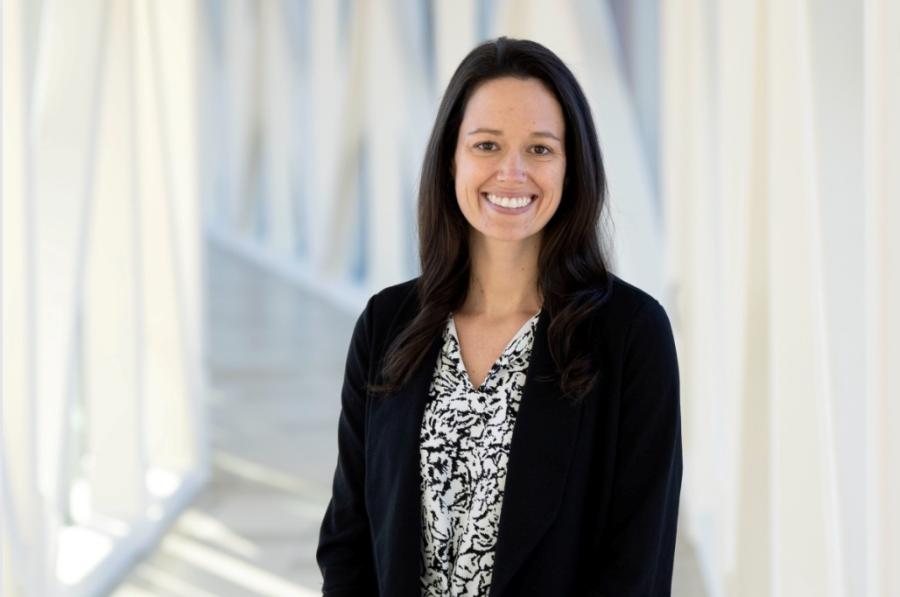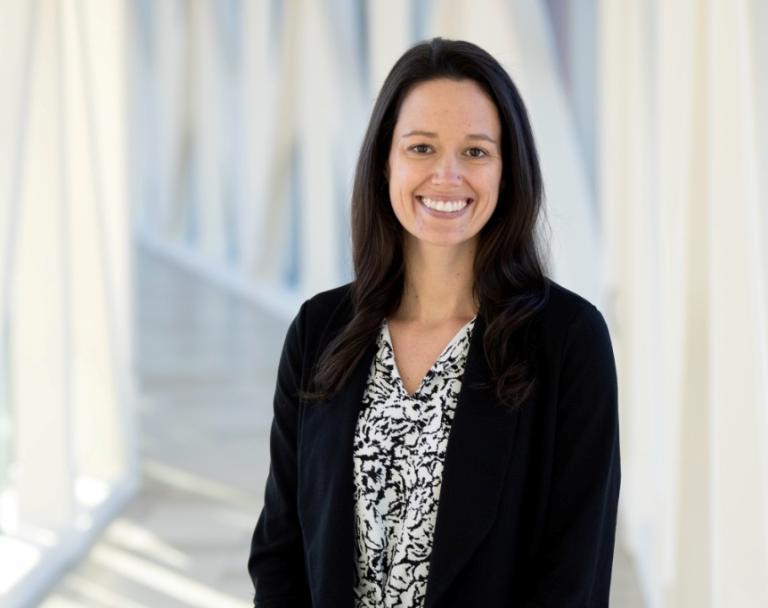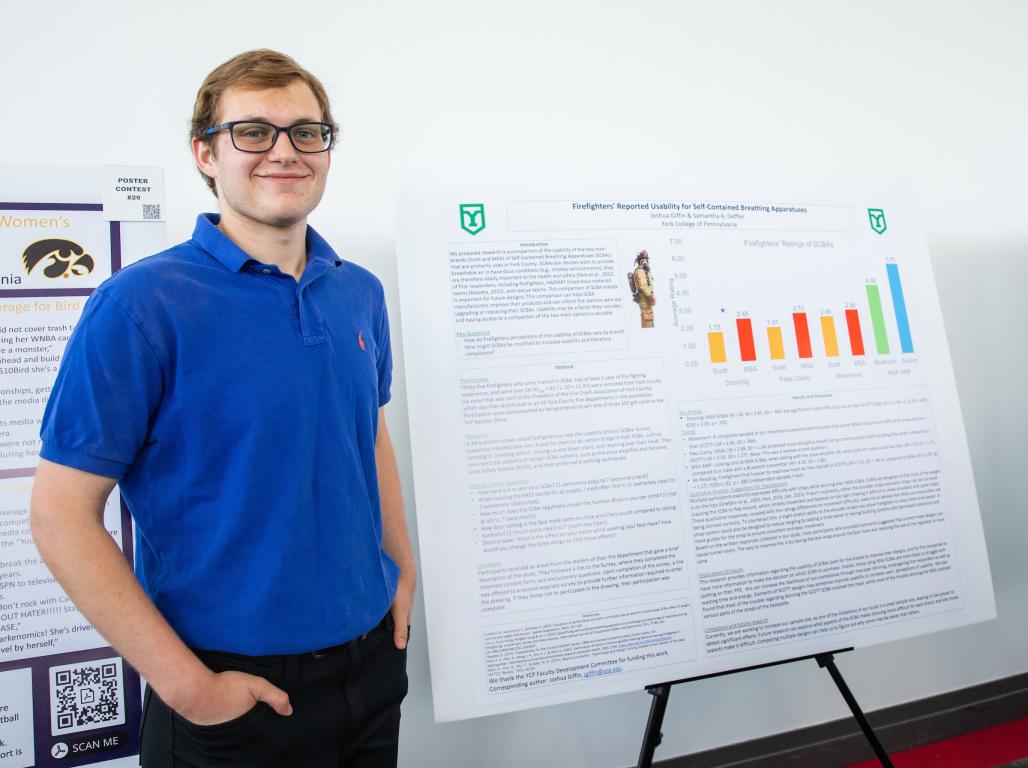Graduating from college often marks the end of an individual's academic journey. But for two graduates of York College of Pennsylvania’s Psychology program, it was the beginning of a cooperative relationship.

Dr. Katelyn Romm ’13 and Emma DiLissio ’20 embarked on different paths after earning bachelor’s degrees in Psychology at York College of Pennsylvania. But their shared connection to Dr. Jennifer Engler, Chair of the Psychology Department, brought them together in a unique mentor-mentee relationship that has evolved into a prolific research partnership.
Dr. Romm’s interest in psychology began when she took an introductory course with Dr. Engler during her first year at York College. Intrigued by the subject and the prospects it offered, she switched her major to Psychology. As she progressed through her undergraduate years, she engaged in independent research projects, including clinical internships, which provided her with invaluable exposure to the research and clinical aspects of psychology.
Discovering a love of research
After she graduated from York College, her passion for psychology and research deepened. While her initial opportunities focused on a clinical setting, she discovered a love of research working on her master’s degree thesis project at Loyola University Maryland. This realization led her to pursue a doctorate in Developmental Psychology from West Virginia University, which she earned in 2020.
Today, Dr. Romm is an assistant professor at the University of Oklahoma Health Sciences Center, with an independent research program focused on identifying psychosocial mechanisms contributing to disparities in substance use among vulnerable young populations.
After DiLissio graduated from York College, she earned a master’s degree in Developmental Psychology from Queen’s University Belfast in Northern Ireland. Her interest in that field of study was strongly influenced by a course she took with Dr. Engler during her time at York College.
“The early exposure to research design helped prepare me for graduate study,” she says.
As DiLissio’s career path evolved, it led her back to the United States, where she found a position as a Clinical Research Coordinator at the University of Pennsylvania. In search of guidance and research experience to pursue a doctorate, she reconnected with Dr. Engler. DiLissio’s desire to continue her academic journey and her interest in family influences and adolescent development prompted her to reach out to her former professor for support.
Mentorship and collaboration
The reconnection of DiLissio and Dr. Engler laid the foundation for the mentoring and research collaboration that would follow. Recognizing the potential for a partnership between DiLissio and Dr. Romm, Dr. Engler arranged their introduction. Dr. Romm’s background in developmental psychology and the resources she had at her disposal provided a valuable opportunity for DiLissio to gain research experience and publish her work.
“I think that one of the best things students can do is to develop that really good working relationship with your advisor,” Dr. Engler says.
DiLissio and Dr. Romm quickly formed a mentee-mentor relationship. Dr. Romm also saw the potential for DiLissio to gain valuable research and publishing experience using data sets that Dr. Romm had gathered during her graduate training and postdoctoral fellowship. Together, they have co-authored two manuscripts that are under review focused on parenting behaviors and their impact on adolescent development. DiLissio is working on a third collaborative manuscript. The partnership has been instrumental in advancing DiLissio’s academic and research goals, helping her strengthen her application for doctoral programs.
The mentorship provided by Dr. Romm has proved invaluable for DiLissio. Mentorship can be a crucial component of academic and career success, ensuring that students receive guidance, support, and access to resources. In DiLissio’s case, staying connected with her professors and advisors, as well as fostering a mentor-mentee relationship, has been pivotal in her pursuit of a doctoral degree.
‘Mentorship can never start too early’
“Mentorship can never start too early,” Dr. Romm says. “Make sure you’re having active, intentional conversations about different career and graduate school options you might want to pursue.”
Dr. Engler has experienced time and again the importance of mentorship in the unique environment of a smaller, teaching-focused institution such as York College, where faculty can build strong relationships with students and connect them to other experts in their fields. These relationships extend beyond graduation, helping students navigate their academic and career paths. “Through close academic advising relationships, I love the varied ways I get to support my students’ professional journeys,” she says.
DiLissio and Dr. Romm have ambitious goals.
DiLissio aspires to become an independent researcher and teach at the university level. “The close-knit community of York College has provided me with invaluable mentorship opportunities that I am excited to foster as I continue in my psychology career,” she says.
Dr. Romm is committed to mentoring and assisting others on their academic journeys while continuing her research and teaching career. “Mentorship is important at any stage of your career,” Dr. Romm says. “I plan to always be mentored and mentoring.”
“I am so grateful for my experiences at York College, which laid the foundation for a fulfilling academic career,” she added. “It has been a great, full circle moment being able to mentor a fellow YCP graduate!”





